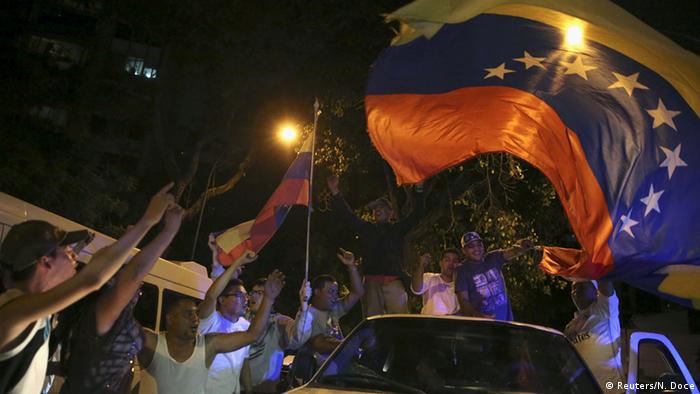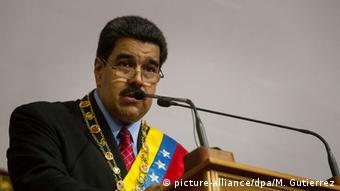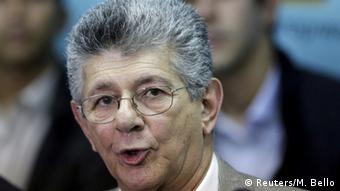Saturday, January 30, 2016
Venezuela
Venezuela's hyperinflation and related problems are breeding social unrest. That, in turn, is driving the political opposition, with a near constitutional majority, to find a way to oust President Maduro.
Venezuela's newly empowered opposition is intensifying efforts to find a legal means to oust President Nicolas Maduro, whose mandate runs until 2019.
The opposition MUD party thrashed Maduro's socialists in December's parliamentary election, winning 112 of the 167 National Assembly seats - giving it a constitutional majority.
That would have left an easy path for the opposition to remove Maduro, including by rewriting the constitution to allow for the president's impeachment.
But Maduro maneuvered to have three of the MUD legislators suspended for possible electoral fraud. The move was backed by Venezuela's Supreme Court, which is packed with loyalists to the late socialist President Hugo Chavez.
Transparency International has dubbed Venezuela's judiciary the world's most corrupt.
Stripped of a straightforward path to removing Maduro, the opposition is searching for other constitutional or legislative means, as the country's economic turmoil continues to deepen.
"Someone said we should let the government finish its term so it can stew in its own juice," the opposition speaker of congress, Henry Ramos Allup said. "That would be irresponsible."
The oil-rich nation has been driven to economic ruin, at least in part by plunging oil prices. However, opponents would argue that 17 years of socialist rule have exacerbated the crisis.
World's worst inflation
Venezuela is suffering shortages of basic foods and medicines, driven by the world's steepest inflation rate - 180 percent by some estimates. Three years of economic contraction have led to long lines for basic necessities nationwide.
Options for the multi-faction opposition include demanding Maduro's resignation, forcing a recall referendum, which is allowed half-way through his term, or reforming the constitution to trigger a new presidential election.
Maduro is not likely to resign, and for now the opposition is short of their constitutional majority. A recall referendum appears to be their best bet, as Maduro will reach the half-way point of his six-year term in April.
"I don't want this to last three more years, going from bad to worse," Ramos said. "If you can treat an illness before it kills you, then you obviously apply the treatment."
But a recall referendum is not without pitfalls, as the Maduro-backed judiciary and electoral institutions could delay the process into 2017, paving the way for his vice president to take over rather than there being a new election if he lost the vote of confidence.
Benigno Alarcon, a political scientist at Andres Bello Catholic University, said the opposition's hand is being forced by growing public anger.
"There have been attempts at looting and protests in various cities," Alarcon said. "That creates a lot of pressure on all those involved, especially on the opposition, which offered a change."
bik/gsw (AFP, Reuters)
Labels:
Communism,
economic illiteracy,
Venezuela
Subscribe to:
Post Comments (Atom)







No comments:
Post a Comment